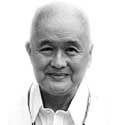
Musings
By Oscar P. Lagman, Jr.

In my last column, I likened a presidential campaign to a total marketing process, the electorate to the market, the candidate to a brand, public opinion polls to market surveys, local chapters to distribution channels, hugging voters and shaking their hands to personal selling, and the communication program to the advertising plan.
I wrote in that column that some political candidates think that advertising and marketing are synonymous, that advertising is all there is to marketing a candidate. That is why our air lanes are now saturated with their advertisements months before the start of the official campaign period.
In product advertising, the No. 1 principle of effective advertising is that the advertisement must be consumer oriented, meaning it should say what benefits the consumer would derive from the product. Similarly, advertisements of political candidates should be voter oriented. The advertisement should address the concerns, interests, and values of the voting population.
Principle No. 2 says the benefit promised should be the most important among the several benefits that can be derived from the product. In political advertising, the advertisement should focus on the most serious concern or the primary interest of most voters.
The advertiser of a product determines through market surveys what benefits the target consumers are looking for in a product and which benefit, among many, is the most important to them. The concerns, interests, and values of voters can be determined through public opinion polls or surveys.
Last Wednesday, five presidential candidates presented at the 47th Philippine Business Conference and Expo what they would do in the first 100 days in office if elected president. I deduce that what they would focus on in their first 100 days as president is what they perceive to be the most serious concerns or in the best interests of the voters.
I do not know if their priorities were based on surveys. Some political candidates do not believe in surveys. They cannot comprehend how the opinions of 1,200 people could reflect the sentiments of millions of voters spread all over the archipelago. Anyway, here are the policies and programs of the five presidential candidates in the order of the candidates’ rank in government:
Vice-President Leni Robredo: Recovering from the COVID-19 pandemic through wider and more effective healthcare programs and energizing the economy through a stimulus package for micro-, small-, and medium-sized enterprises (MSMEs).
Senator Panfilo Lacson: Laying the foundation of a clean government, restoring confidence in government by requiring public officials to waive their rights under the bank secrecy law, funding fully the Universal Health Care Act, supporting the MSMEs, and expanding agriculture.
Senator Manny Pacquiao: putting corrupt officials in jail, implementing a housing program for informal settlers, reducing loans.
Senator Bong Go: restoring financial stability and the economy to pre-pandemic levels, supporting the tourism industry and agriculture, continuing the Build, Build, Build program, and increasing the Malasakit centers.
Manila Mayor Isko Moreno: reinforcing the healthcare system, rehabilitating the economy by providing jobs, business and career opportunities, and reducing petroleum and electricity taxes.
Former senator Bongbong Marcos did not participate in the conference. But in his advertisement, he promises to unify the country, develop agriculture, and find new sources of energy.
In product advertising, the advertisement cites the support for the claim of high quality or superiority of the brand like a special ingredient or a unique process. In political advertising, the character, formal training, or substantial experience of the candidate or all of them are presented as the basis for the ability of the candidate to deliver his promise.
Here are the respective images the presidential aspirants said they project themselves as:
VP Robredo: a leader who marched and worked alongside people and fought for their dreams of a country they deserve; a public servant who did what she could with the limited power and resources available to her to uplift the lives of the people.
Senator Lacson: Experienced in governance, a leader, honest
Senator Pacquiao: one who truly loves the country and the Filipino people and is dedicated to improving their lives that they may not experience the suffering he went through.
Senator Go: Chosen by President Duterte to continue his reform program
Mayor Moreno: Harbinger of true and meaningful change
Former Senator Marcos: Unifying president who will bring about the country’s golden age.
The next Social Weather Stations and Pulse Asia reports will indicate which candidate the voters think addresses squarely their concerns and interests and if that candidate is capable of fulfilling his promise. It is not the end of the journey to Malacañang for the presidential hopefuls who rank poorly in the surveys. They can revise their advertising strategy on the basis of what the results of the latest surveys suggest.
In the presidential race, the TV commercial can be likened to a vehicle. A change of vehicle may bring one to the destination ahead of others. A change in TV commercial may enable a presidential candidate to overtake the others and stake a claim on Malacañang.
Oscar P. Lagman, Jr. had worked for a public opinion/market research firm, an advertising agency, and taught marketing subjects in three graduate schools.